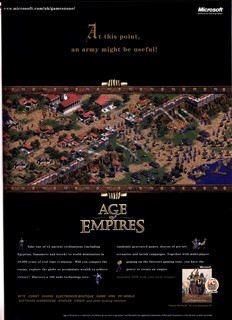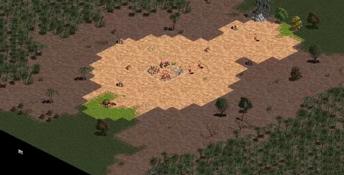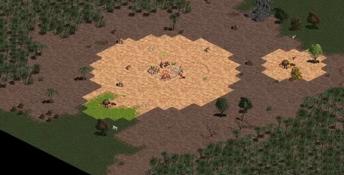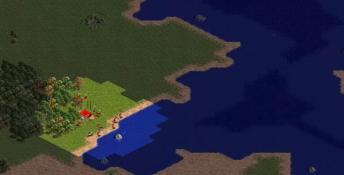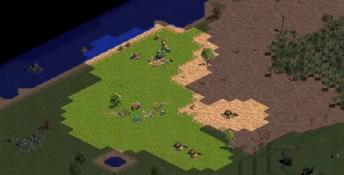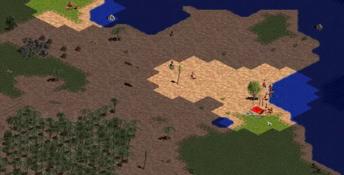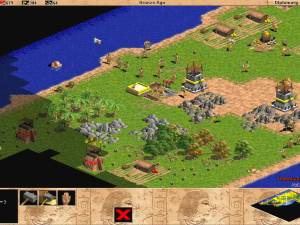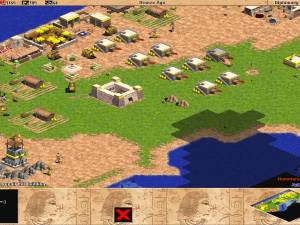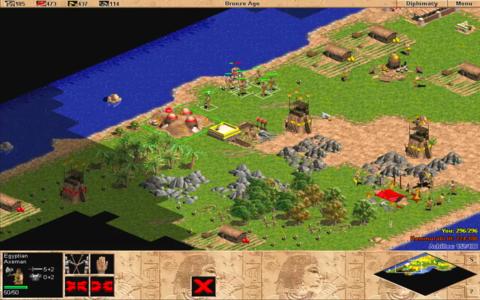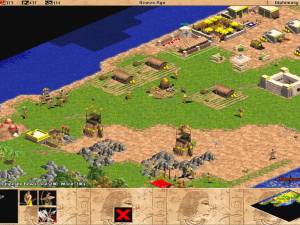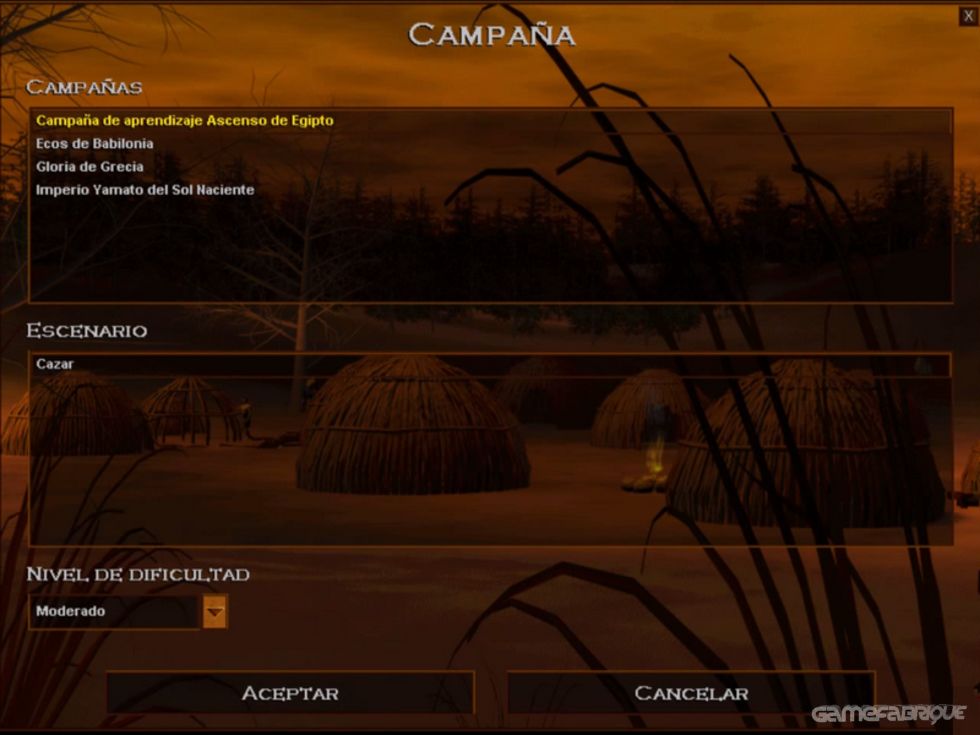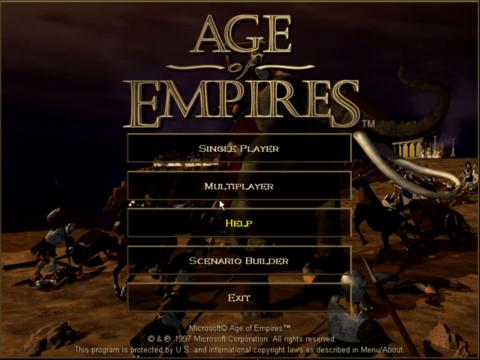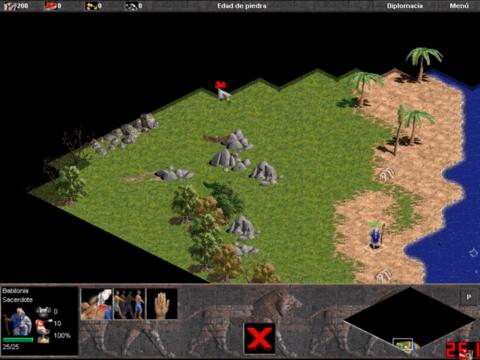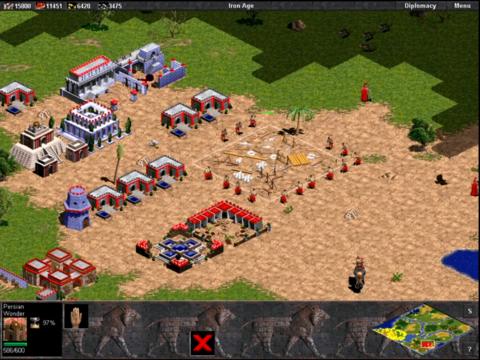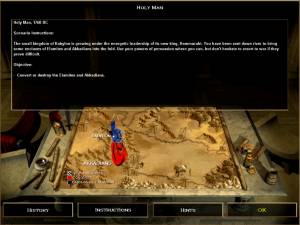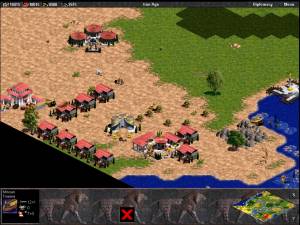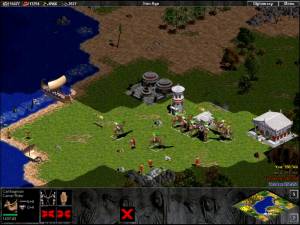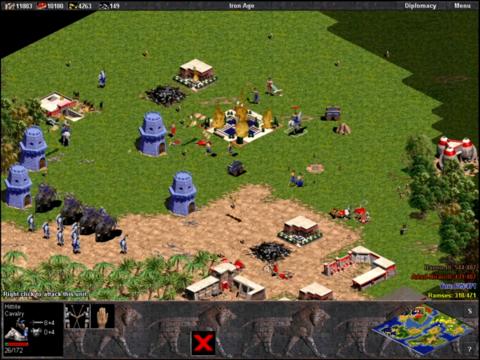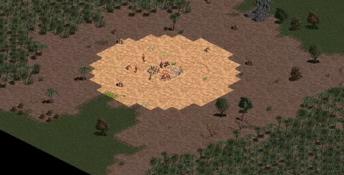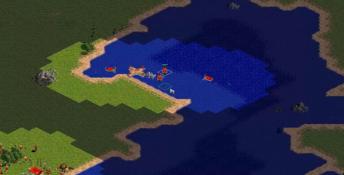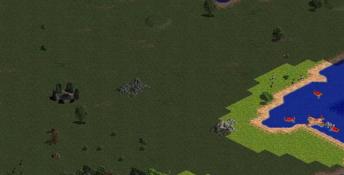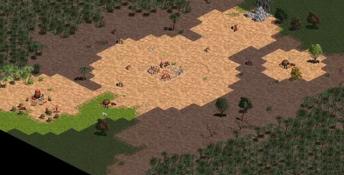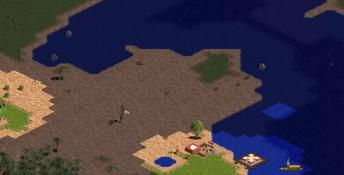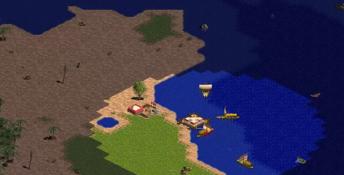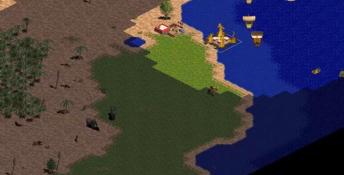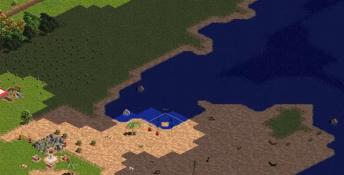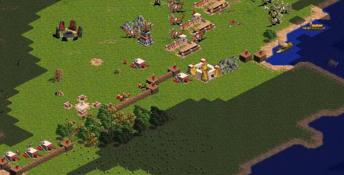Age of Empires
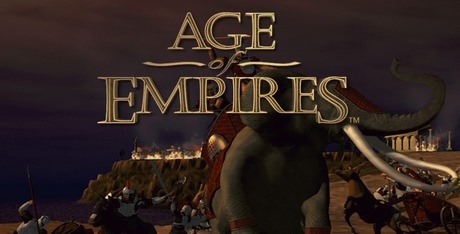
| a game by | Microsoft |
| Genre: | Strategy/War |
| Platform: | PC (1997) |
| Mode | Single-player, Multiplayer |
| Setting | Ancient civilizations |
| Gameplay | Resource gathering, base building, unit training, and combat |
| Graphics | 2D isometric graphics |
| Soundtrack | Original soundtrack inspired by various ancient civilizations |
| Editor Rating: | 7.8/10, based on 3 reviews |
| User Rating: | 7.9/10 - 59 votes |
| Rate this game: | |
| See also: | Download Strategy Games, Games Like Red Alert, Age of Empires Series, Games Like War Thunder, Games Like Banished, Games Like For the King |
When it comes to strategy games do you get much more classic than Age of Empires? This is the game that started it all and it is crazy to think that this game came out the better part of a quarter of a century ago! It is a series that has gone from strength to strength and today I am taking a step back in time to see how it holds up.
Starting From Scratch
When you go back and look at a classic like this it is really hard to do so. On the one hand, I have very fond memories of playing this game and as a result, I can truly appreciate how this was a game-changer when it was released. On the flip side of this though, I am not sure I would ever in a million years expect someone new to the series to jump into this over one of the newer games in the Age of Empires series. As far as the presentation of the game goes, it is not bad. This is an older PC game so you have to keep that in mind, but the visuals are not all that bad and there is some very nice sprite work here that tugs on those nostalgia strings. It is worth noting that a Definitive Edition of this game was released a little while back that did improve the visuals.
Take It All
The goal of the game is that you are in charge of an empire. There are just under 20 for you to choose from and you have to make sure you are taking care of your people. What is cool is that the empire you choose will actually dictate a large portion of the early part of the game such as the resources and so on that you have. You will want the resources for your own empire, but so will others which can lead to war You cannot just take what you want and try to steamroll over the other nations. Well, you can try, but eventually, it will catch up to you. You have to shake hands and try to play nice at times, but never be scared to go to war when it is required. In going back and playing the game I did actually like how scaled back it was in comparison to what we have now. It made things a lot simpler and I still did have a fair bit of fun with it.
I think if you played Age of Empires back in the day it is worth going back and taking a look at it. The game holds up better than you would think and the more “basic” nature of it is actually part of its charm. It is really lacking in-depth and features in comparison to the modern games, but I still think there is something good here. For a player new to the series I would recommend checking out one of the newer games.
Final Score: 7.5/10
Pros:
- The dated visuals do have some charm
- It is not super complicated like some modern games
- You will find that the different nations each have their own personality
- It is one of the most classic strategy games of all time
- Even now, it is an addictive game
Cons:
- The visuals are quite dated which some might not find charming
- The game is lacking in features compared to the modern entries
Download Age of Empires

System requirements:
- PC compatible
- Operating systems: Windows 10/Windows 8/Windows 7/2000/Vista/WinXP
Game Reviews
Back In 1996 Microsoft may well have been the biggest company in the world, fronted by the richest man alive, but it didn't necessarily follow that by providing virtually every PC across the planet with the means to operate that Microsoft made the finest games. Neither prolific nor prodigious, Microsoft's entertainment output was up to that point notable only for it's annual update of Flight Simulator, a game about as entertaining in the eyes of most gamers as that other great Microsoft entry into gaming's hall of legends, Solitaire. If Bill Gates and co wanted to be taken as seriously for their entertainment software as i they did for their applications, they needed to release a killer game. Little did they know that in February of that year they'd found one.
Although development on Age Of Empires begun early in 1995, Microsoft had little to go on when they first saw it later that year, as Rick Goodman, AoE's lead designer recalls: When we invited them to visit us, they came and we spent about 10 minutes demoing a man chopping a tree.
Truly, there wasn't much to show at that point. You couldn't construct a building, research a technology, or conduct combat. But, a villager could chop a tree. Microsoft saw this and concluded that we were working on a Life Sim'. Apparently, they needed a Life Sim in their portfolio. So, soon afterwards,
Microsoft offered us a publishing agreement. I'm still not exactly sure why.
Back To The Stone Age
Ensemble Studios was born in July 1994 out of Ensemble Corporation, a Dallas-based database accounting company, founded by brothers Tim and Rick Goodman. Seemingly bored with developing spreadsheets and running out of wacky ties with which to brighten the days, it occurred to the duo to replace their suits with standard issue Atari T-shirts, grow their hair down to their arse cracks and start programming games rather than relational databases.
Before working on Age Of Empires I was an accountant," reveals Rick. I had loved gaming of all types, video and board games, for 20 years before starting to work on Age Of Empires, but the possibility of actually designing a game, much less a videogame, had never occurred to me.
Stealing' a programmer from the mother corporation, Rick began work, first by burying the programmer under a pile of programming manuals and hoping he might come up with something, which he did months later to the surprise of everyone - a small 2D FPS game demo, providing the gang with the inspiration to carry on and create a game.
We had no idea what game to make, remembers Rick. I bought a copy of the original Warcraft and we then embarked on a quest to figure out what to do. We considered a cowboys and indians game, a railroad game and a game in which you were trapped on a deserted island and had to solve puzzles to escape.
Then at the start of 1995 we hired Bruce Shelley and formed a three-person committee, consisting of Bruce, myself and my brother. We met each week to discuss proposed game ideas before finally deciding on a real-time Civilization'. The concept behind Age Of Empires then grew out of those meetings.
There's A Bruce Loose
It's hard to imagine that someone who would later be considered a gaming legend, with hits such as Civilization, F-19 Stealth Fighter and Railroad Tycoon already under his belt, would become involved with an unknown games studio without much experience of what was becoming a risky business to be in. But as the old adage proved, it's as much about who you know as what you know and Tony Goodman, the business brains behind Ensemble, had an old acquaintance keen to help out.
Tony was an old friend from many years earlier, recalls Bruce Shelley. When he and colleagues at his business applications company were thinking about getting into game development, he started calling me up and asking pretty detailed questions about the process of creating games. Eventually he asked me to get involved.
At first Rick Goodman, Tony, and I met regularly on the phone to discuss the design. Then Tony got more involved in building the company, leaving Rick doing most of the work with me helping him." While the small team of Ensemble's programmers worked on a 2D tile-based engine to power the game, the three designers (Rick, Bruce and new recruit Brian Sullivan) cracked on with the design, working with elements of Blizzard's Warcraft and Sid Meier's Civilization, aiming to balance the immediacy of the former with the realism and depth of the latter.
Those games were definitely the biggest influences," says Rick. There were elements of those games that I liked and some that I felt could even be improved. I liked the epic scope of Civ and the random maps, but I really wanted our game to be multiplayer. I liked the graphics and action orientation of Warcraft, but I felt that a historical realistic' game would have a broader world-wide appeal.
I think the single greatest influence and resource available to any designer is all the games that already exist," says Bruce. Our games originally derived from several classic games and then began to derive from our own creations. We did a lot of research and conceptualising because it took a while to get an engine together to build a prototype. Angelo Laudon did a fantastic job as our lead programmer making that happen. From the first prototype the game just continued to evolve through playing, adjusting, recoding, and so on, over and over.
Overtime, the vision changed, says Rick, as development progressed from the conceptual stage to the implementation stage. It's safe to say that few of us had any real experience creating a computer game, so we had no idea what we were getting ourselves in to. As a result, the game charted its own direction, much more so than any one team member charted the direction for it. Our philosophy was: as long as the game was becoming more fun to play each day, then we felt were on the right path.
Get The Balance Right
Considering Ensemble's speciality was business software, it remains something of a minor miracle that development on their first ever game continued with few real problems. With much of the team receiving on the job training, and veteran Bruce Shelley's skills centred on design rather than coding, neither he nor Rick Goodman can remember any significant problems.
If I had to choose one major challenge during development it would be the performance of our 2D graphics," says Rick. The engine was relatively slow and we recognised this early on. So Matt Pritchard went to work rewriting it. His idea was. rather than redrawing the entire screen each and every frame, we would, instead, keep track of every individual pixel on the screen and only update those pixels that need updating. I had no idea if such a thing was even possible... but after eight months of work he completed the task and we got a massive boost in graphics performance."
As the game neared completion, with Microsoft now on board, the problems of having 12 races and numerous units and buildings and technological advances in the game became apparent. Balancing the gameplay would be a huge undertaking that Ensemble recognised they would have to get right early on.
To our credit we started the play balance process eight months before we shipped," says Rick. We used every minute of that time to attempt to balance all of the civilisations and all of the units in each civilisation. We had never done such a thing before, so we didn't know how to go about doing it. Therefore, we just had everyone play multiplayer games every day from February to September of 1997. We did a pre-game briefing and a postgame debriefing. Then, I made play balance changes to the game and we played again the next day. I think we played a total of about 500 internal play-test games during this period, not counting the Microsoft test team's parallel effort in Redmond.
Age Of Sales
That Age Of Empires wasn't quite the Life Sim game they'd signed up to publish didn't seem to worry Microsoft as it soon became apparent during months of testing both at Ensemble and Microsoft HQs that it would be a huge success, with forecasts putting worldwide sales at the half a million mark. This for Microsoft made the game comparable only with MS Flight Sim and MS Golf, their only two real hit games to date. In fact, the game was so successful that the first shipment totally sold out, leaving Christmas shelves across the US empty of stock.
We had no idea at the time, but, in hindsight, AoE turned out to be a real blessing for Microsoft as well as for Ensemble Studios, says Rick. Microsoft was suffering badly in the minds of gamers and in the press. Even we felt the splash damage before the game was completed. At one point, before the game shipped, we wondered whether the Microsoft name might actually have a negative connotation in the minds of gamers.
We only realised how successful the game was after we ran out of copies during the holiday period in 1997 and it went past one million copies sold. Recalls Bruce. It was continuing to sell really well at that point, there was a huge fan community around the game, and it was clear it was appealing to a broad audience. The response greatly surpassed our expectations, although we knew the game was good.
It was at this point that Rick Goodman, the game's leading architect, decided to leave the studio he helped create. In 1998, he formed Stainless Steel Studios and soon began development on Empire Earth, in many respects an even more ambitious game than AoE. This took the real-time concepts of its predecessor and added in the entire past, present and potential future of Earth history.
After AoE I had a clear vision of the game I wanted to do next, says Rick. Ensemble also had a clear vision, so we amicably parted company so we could each pursue our own goals.
They Sold A Million
Today with combined sales of Age Of Empires, its two sequels and two expansion packs in excess of 8.5 million, it seems unlikely the series will ever come to an end. What imperfections remained have largely been ironed out as the series has evolved. Though relatively basic, the real-time clashes inspired by Warcraft are today regimented battles, with players able to organise their armies into intricate formations - just one of Ensemble's innovations that come as standard in realtime strategy games since. The latest in the series, Age Of Mythology, takes the series in a new direction, both in terms of setting and the new technology powering it, though the core concept -to have fun - has remained central.
I would hate to pick a favourite out of the games I have worked on, says Bruce. I think in general I believe the most recent is the best because each builds on those that came before. AoE will always be special, however, because it was a beginning for so many great things that have happened since. The fact that we provided so many different gaming experiences within the same box, allowing such a broad spectrum of gamers to find a way to play and enjoy it worldwide, from casual to hardcore, children to seniors, in countries from Germany to Taiwan. Few games achieve that appeal. That is what I am most proud of."
I think Age Of Empires is a great game, says Rick Goodman. The sequel too is wonderful, but I have never thought of the original as being a gaming milestone. I do believe that there are games that are definitely milestones in history. But, personally, I don't consider AoE to be in that category. Microsoft we're sure would disagree. And anyway, what do accountants know about games?
It's Time For Steam And Artists In Big Pants
With the first game set in the ancient world, the second during the medieval era, it seems obvious that the next Age Of game will be set from Europe's early Renaissance period until the Industrial Revolution, the age of technology, a time during which culture, government and science developed at a rate unknown since the Roman Empire. Ranks of musket-wielding infantry will patrol the battlefield, trains will chuff across the countryside carrying linen for trade and villagers will pack the local factory to make heavy machinery. That's our theory anyway.
Whether Ensemble has plans to dive straight into Age Of Empires IV, or instead branch off again into the realms of fantasy for Mythology's first add-on, we can be pretty sure that the team will want to make more use of their new 3D engine. We haven't seen the last of the Age Of Empires, that's for certain.
Overview
It's rapidly becoming apparent that there are fewer and fewer truly well-designed games on the market, especially in the real-time strategy category. This genre seems to have fallen prey over the last year to the get-rich-quick mentality that has produced a whole host of mediocre Command and Conquer wannabes, but few real winners. With the high standards getting ever higher, the arrival of an RTS game from a company best known for such pulse-pounding titles as DOS 5.0 and Visual C++ might lead you to dismiss Microsoft's Age of Empires without a second look. That would be your loss. This is an absolutely stellar game -- our leading contender for Strategy Game of the Year by a good distance, even over the impressive recent releases of Total Annihilation and Dark Reign.
What makes Age of Empires great? A lot of things. Most importantly, it is incredibly fun and addictive. We've had the beta for going on three months and we've been hard pressed to stop playing it long enough to review other games. Add to the great gameplay absolutely superb graphics, the most balanced and intelligent economic model we've yet seen, and a truly innovative tech tree that builds on the best of Civilization, and you've got yourself a really amazing game.
Gameplay
Sure, Age of Empires is basically a take-over-the-world type game, and yes, it has a problem or two that's still hanging around in the retail release, but those cease to matter quickly once you're five minutes into the game.
You begin with only a tribal council fire and three villagers and must learn where to hunt and fish, gather wood and stone, and mine for gold. Once you have built a basic economy, you can begin expanding your village and researching new technologies that will eventually enable you to irrigate farms, smith iron and steel weaponry, perfect masonry for your city walls and educate your military cadets into deadly legions. Along the way, you'll have to deal with wild animals, famine, enemy raiders, and a vast map full of uncharted territories.
What immediately impresses, though, is not simply the richness of the world and of the work that went into all the intricacies this game offers, but rather the immersive experience of playingAOE. You know those games that you load up "just for a minute" to check out the demo and end up looking up at the clock at 3 a.m.? This is one of those.
First, because you play the game through four different ages (stone, tool, bronze and iron), each of which must be reached by accumulating various resources and proving your prowess by building the staple structures of a civilization for a given age. But don't worry, this doesn't take hours -- once you've learned how to coordinate your resource gathering and construction processes, you'll progress quite quickly. And with each new age achieved, you gain new technologies, buildings, unit types and defensive options. This makes for an RTS experience unlike any other game out there. Sure, other games let you "upgrade" certain units or give access to new units with the construction of a given combination of structures, but none ask for the sort of coordinated thought and strategy that Age of Empires requires. In a fast-paced multiplayer game, the decision to expend resources toward advancing to the next age vs. beefing up your guard towers and army could prove the difference between life and death. If your Neanderthal opponent shows up with a couple dozen club-wielding goons while you're getting enlightened, you're history. But advance your civilization and gain the wheel, advanced ballistics, and engineering knowledge, and those cavemen will be no match for your catapults led by Ben-Hur and his well-armed charioteers. Second, consider the fine interplay between various resources in AOE: instead of simply mining some abstruse material (spice by any other name), Age of Empires requires that you gather wood, food, stone, and gold. Neglect any one of these and you will lose. To win, you will need to send your villagers out to explore the map and secure the best gold and stone deposits with military units and guard towers. Then you'll need to decide what balance to strike between your hunters and gatherers and your military units -- AOE adds in the additional stricture of a population limit (there have been many gripes about this in the newsgroups, but over the course of playing the game better than 30 times, I can tell you that it is not only fair, but adds an excellent additional condition to the strategies within the game). Now I admit, there have been numerous occasions late in a heated multiplayer battle when I sent a squad of idle miners out to have a lunch date with the local lions, or had them wander a bit too close to an enemy guard tower so that I could crank out a couple more triemes or catapults back at the base, but this too adds to the skill needed to be an adept commander.
Finally, the absolute best aspect of the gameplay in Age of Empires is the vast number of options you have as a player. For one thing, you can set several different victory conditions other than simple conquest. Then there is the ability to trade with other players for needed resources, 50+ building and technology upgrades, a fantastic variation in military and domestic units, and distinctly different feelings to different phases of each game. This is not just a game of conquest, which is perhaps what confuses some of its detractors -- yes, it is first and foremost a military strategy game, but it is incredibly rich in its economic and technological model, even to the point of actually drawing on the historical aspects and abilities of the twelve distinct cultures represented in the game.
Criticisms
This is not a section you will usually see in our reviews, but there will no doubt be a host of flames from those who think I'm either sucking up to Microsoft or completely off my rocker, or both. So here's what's wrong with the game, or at least the accusations I've heard:
Bad path finding AI: yes indeed, your average woodcutter is, in fact, dumb as the stumps he leaves behind. In fact, sometimes he'll sit on one and do nothing until you find him and send him off to the next chore. And sure, your chariots will get stuck in a narrow gap between houses in your village if you build 'em too close to the stables or don't leave a good exit path through town. Word is, there's a patch in the works to help correct this (where it's actually a coding problem and not a symptom of bad urban planning on the player's part), but do you know of a single other RTS game that doesn't have slightly clueless units? That's why your troops need a good commander to inspire them.
It's Warcraft 2 / Civilization 2 all over again: It's not -- if you've really played all three, you'd know enough not to make that statement. Age of Empires is the inheritor of some of the same excellent ideas from both those titles, but is itself a striking innovator in ways that neither of the earlier generation of strategy titles managed to achieve.
The population limit sucks; you can't really build an empire: play a few multiplayer games, then revisit that idea. Would you really like to have 3,000 units on each side? Really? Games would take forever to complete and there would be zero strategy besides a simple race to the resources and a blitzkrieg mentality. There are enough one-dimensional slugfest titles on the market. Can't build an empire? Well, true, not in the Civilization sense, but then a multiplayer game of Civilization was the sort of thing that most of us haven't had the spare time for since, say, junior high.
Bottom line: you can't satisfy all the people all the time, but you can definitely tick off the more reactionary elements by not having your marketing department include the disclaimer "Caution: some people might not like this game."
Graphics
There is no better RTS game graphically than Age of Empires, period. Every tree, rock, bird, and bush is beautifully rendered; the mane on a charioteer's horse ripples in the wind, a lone eagle soars overhead, pausing every few seconds to flap its wings, and the villagers struggle under the weight of the loads of wood and stone they carry back to the village. There are times, in fact, when you will simply stop to marvel at the realism that was crafted into this game. Age of Empires will stand as the high-water mark for all RTS titles that follow in many categories, but the graphics are without question unmatched. If you doubt this, I encourage you to visit Microsoft's Web site and see the animations and renderings for yourself.
Audio
Yet one more area where Age of Empires excels, the audio is dead on the mark. From the rumble and creak of a heavy catapult getting underway to the metal-on-stone clash of swords and pikes against a sentry tower, the audio in AOE is perfectly rendered. A small sticking point is that there is a bit of a lag effect with the sound effects when a chat is going on between several people in multiplayer mode, but this a rare case, and is certainly not a problem limited to AOE.
Multiplayer
I personally defy anyone to play 2 or 3 multiplayer games of Age of Empires and not be absolutely hooked -- I simply haven't played a more addictive multiplayer game since Doom. The many different aspects of the different cultures, victory conditions, map types, resources, and troop and technology nuances make this thereal time strategy game for multiplayer. Plus, given the ability to share resources among allies, use priests to convert enemy units and buildings, and use wildly varying strategies to succeed, there is virtually no limit to the ways this game can be enjoyed by a group of people -- it is the closest game I've yet seen to realizing the perfect mix between strategy, economics, technology, weaponry, and unit types without over- or under-balancing any of them.
System Requirements
Minimum: Windows 95; 16 MB RAM; SVGA 256 colors; 4X CD-ROM drive; SoundBlaster or compatible sound card Recommended: Pentium 100 or higher; 16 MB RAM; Win95, 28.8 modem, etc. Reviewed On: Pentium 133, 64 MB RAM, Matrox Millennium, 6X CD-ROM drive, SoundBlaster AWE32, 28.8 modem, Windows 95, mouse
Bottom Line
Go buy this game. If you can't afford it, put it on your Christmas list and go get the demo. You really can't do better than Age of Empires, but I hope that a lot of game makers try in the future -- I'd love to see what they come up with. In the meantime, Age of Empires marks the first fully mature real-time strategy title. The criticisms I have heard -- which mostly focus on 1) similarities to Warcraft 2 and/or 2) hatred for Microsoft in general -- are both simply way off the mark. This is a great game, builds on the best of both Warcraft 2 and Civ 2 (would you rather they ignored previous successful games as models?), and quite frankly is the best game to ever come out of Microsoft. And let's not forget: although it has all the MS marketing and hype, this beautiful game was built by Ensemble Studios, which deserves all the credit for the substance behind the UI and the packaging. Watch what these folks do in the future, because AOE is a great game.
Snapshots and Media
PC Screenshots
See Also
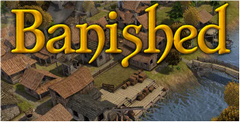 Banished
Banished
 Civil War Generals 2: Grant, Lee, Sherman
Civil War Generals 2: Grant, Lee, Sherman
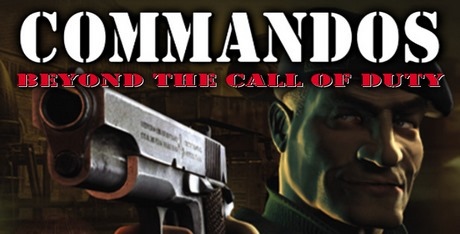 Commandos: Beyond the Call of Duty
Commandos: Beyond the Call of Duty
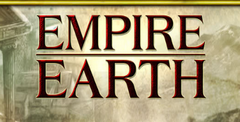 Empire Earth
Empire Earth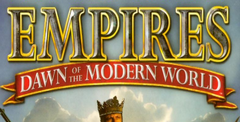 Empires: Dawn of the Modern World
Empires: Dawn of the Modern World
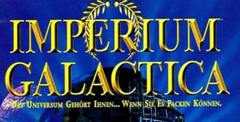 Imperium Galactica
Imperium Galactica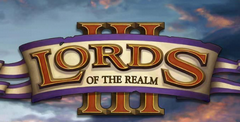 Lords of the Realm II
Lords of the Realm II
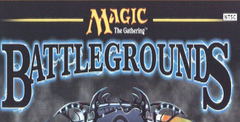 Magic: The Gathering Battlegrounds
Magic: The Gathering Battlegrounds
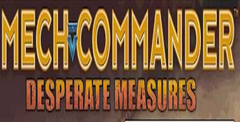 MechCommander
MechCommander
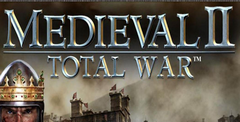 Medieval: Total War
Medieval: Total War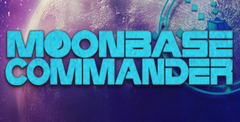 Moonbase Commander
Moonbase Commander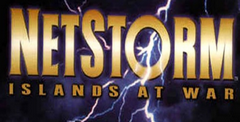 NetStorm
NetStorm
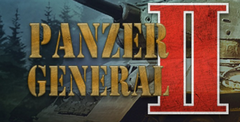 Panzer General II
Panzer General II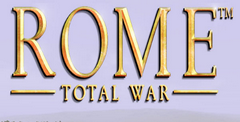 Rome: Total War
Rome: Total War Shogun: Total War - Warlord Edition
Shogun: Total War - Warlord Edition Space Colony
Space Colony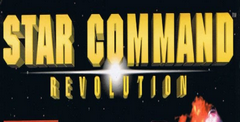 Star Command: Revolution
Star Command: Revolution Star Trek: Away Team
Star Trek: Away Team
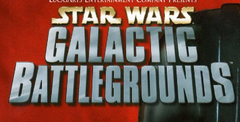 Star Wars: Galactic Battlegrounds
Star Wars: Galactic Battlegrounds
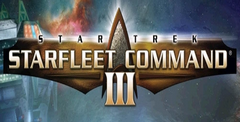 Starfleet Command III
Starfleet Command III
 Total Annihilation
Total Annihilation
 Uprising
Uprising
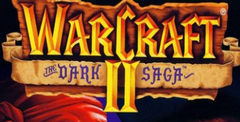 Warcraft 2: The Dark Saga
Warcraft 2: The Dark Saga
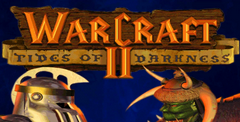 Warcraft 2: Tides of Darkness
Warcraft 2: Tides of Darkness
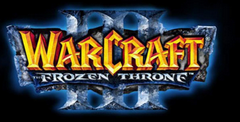 Warcraft III
Warcraft III
